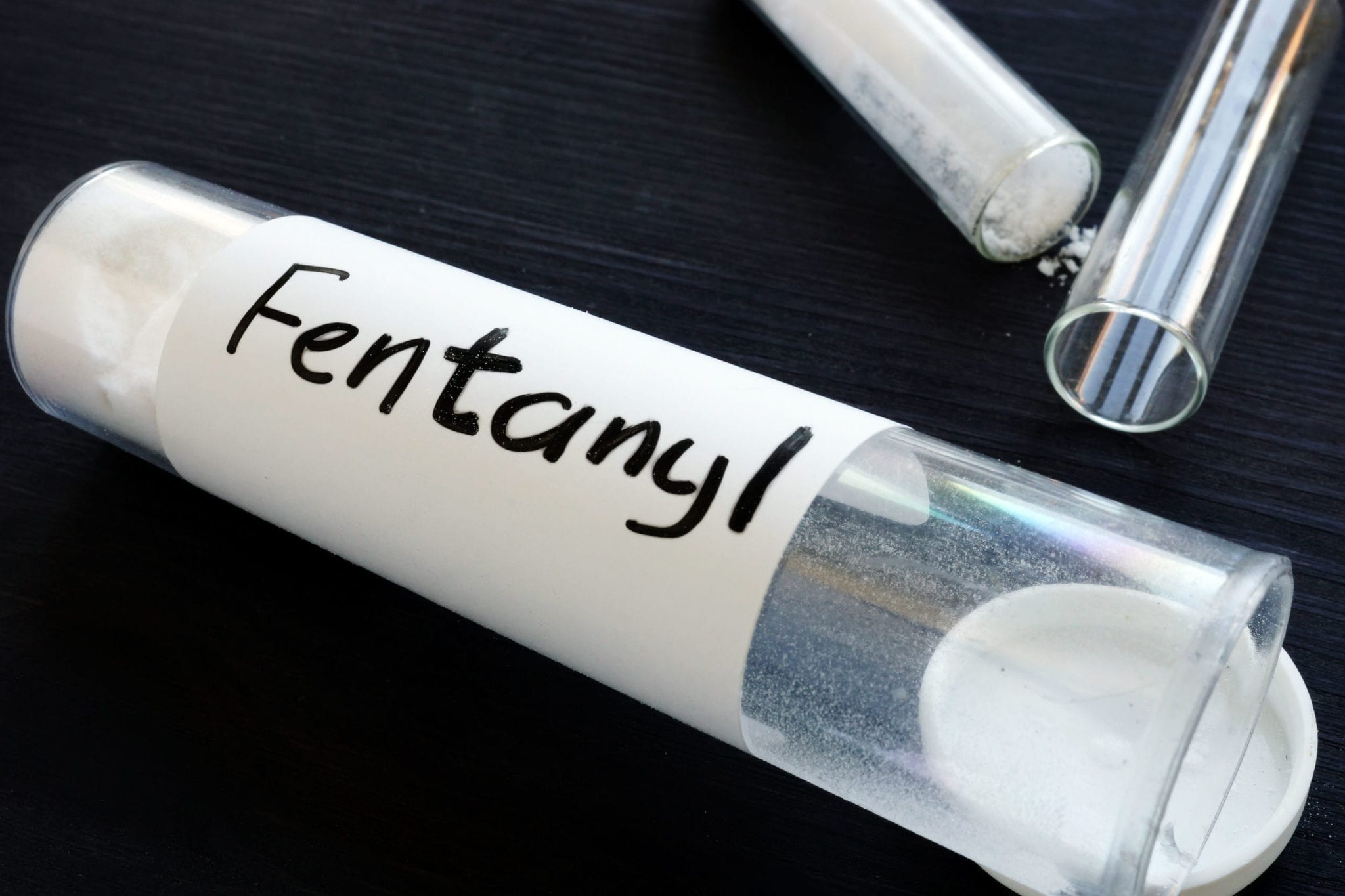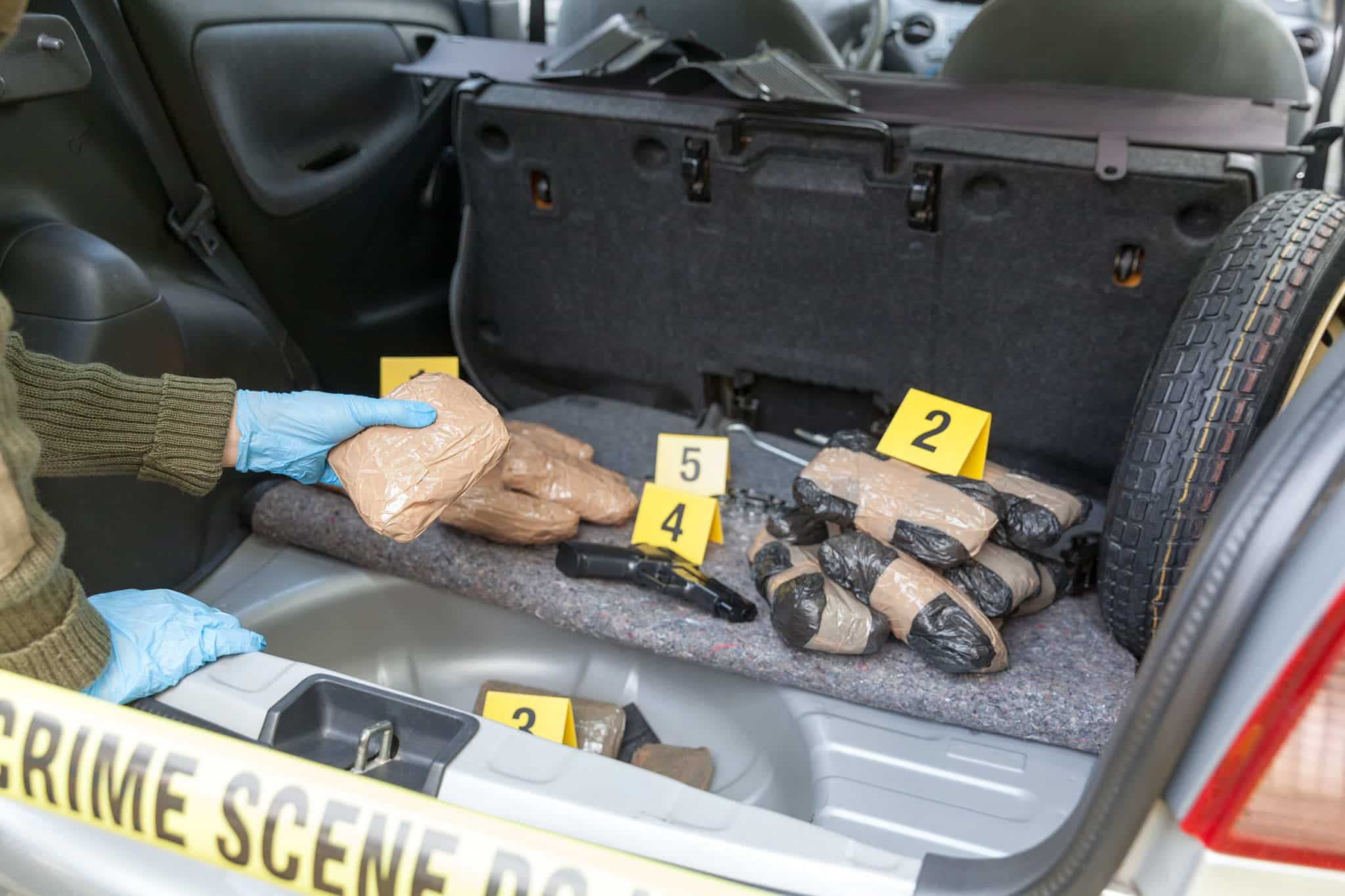A synthetic opioid 50 times more powerful than heroin, Fentanyl is responsible for a large proportion of opiate overdose deaths occurring in every segment of society and every region in the country. It has even been found mixed into other illicit drugs such as cocaine.
Accordingly, seizing illicit fentanyl and catching traffickers is quickly becoming a major priority for federal officials.
Hundreds of Pounds of Chinese Fentanyl Seized at U.S.-Mexican Border
The White House has recognized the international nature of the fentanyl supply chain and announced actions to crack down on fentanyl trafficking.
Earlier this year, U.S. Customs and Border Protection officers made the largest fentanyl seizure in history. Officers seized 254 pounds of the drug from a truck attempting to cross the U.S.-Mexican border in Nogales, Arizona.
The fentanyl allegedly originated in China and was being smuggled into the U.S. by the Sinaloa cartel, the most powerful drug trafficking organization in the world.
In response, the Trump administration said its efforts will involve a multi-pronged approach with sanctions against foreign narcotics kingpins and advisories to the private sector.
This initiative is likely to increase prosecution of suspected drug trafficking activity, and could even lead to overzealous policing, resulting in innocent people being charged.
The White House Aims to Interrupt the Foreign Fentanyl Supply Chain
A large proportion of illicit fentanyl and fentanyl analogs are believed to be synthesized in underground labs in China. From there, the drugs are either shipped directly to the U.S. or sent to Mexico and trafficked into the U.S. by Mexican drug cartels.
The White House believes that by imposing sanctions on suspects and issuing advisories to private sector, as well as to industry segments that could potentially become involved, this will disrupt the fentanyl supply chain.
The Foreign Narcotics Kingpin Designation Act
The Foreign Narcotics Kingpin Designation Act is actually legislation enacted in the late 1990s as a way for the U.S. Treasury to be able to freeze cartel assets within American jurisdiction and to prosecute U.S. citizens and entities found helping cartels manage their funds.
Under this Act today, it seems the White House intends to designate foreign actors as producers of narcotics likely to enter the U.S. Once that happens, the government can impose sanctions to block transactions with these individuals or organizations.
Private Sector Advisories: The Four “M”s
The White House has also issued unprecedented private sector advisories to help U.S. and foreign businesses from inadvertent involvement in fentanyl trafficking.
The White House has also issued unprecedented private sector advisories to help U.S. and foreign businesses from inadvertent involvement in fentanyl trafficking.
These advisories aim to address four facets of fentanyl trafficking:
- Manufacturing Advisories: Describe the unique aspects of manufacturing illicit opioids to assist the private sector in identifying possible production of fentanyl.
- Marketing Advisories: Raise awareness of the marketing and sale of illegal fentanyl via unsuspecting private sector platforms: social media, online forums, e-commerce sites.
- Movement Advisories: Increase awareness about the entities involved in each stage of the fentanyl supply chain.
- MoneyAdvisories: Alert financial institutions to potential financial schemes and money laundering operations related to fentanyl trafficking.
Federal Drug Trafficking Isn’t Always What You Imagine
When most of us think about drug trafficking, we think of situations such as the major fentanyl bust we touched on above: large quantities being moved into the U.S. by major cartels and drug trafficking rings.
However, situations like this comprise only a small percentage of drug trafficking busts. Most drug traffickers act alone, or with few accomplices. Some busts don’t involve drug trafficking at all…at least in the conventional sense.
Under federal law, when someone is caught in possession of drugs in quantities over the amount which would generally be considered to be too large for personal use, the incident automatically triggers drug trafficking charges.
For example, let’s say “Darcy” is an addict, and orders heroin over the darknet. She doesn’t want to risk frequent purchases, so she buys 100 grams to support her own habit for the next few months. If her package is intercepted, she will no doubt find herself facing federal drug trafficking charges.
Piquing Federal Prosecutors’ Interest and What That Could Mean
Drug trafficking is illegal at both the state and federal levels. This means that any drug trafficking case could potentially be prosecuted federally, which is left to the discretion of federal prosecutors.
Federal prosecution is more likely under these certain circumstances:
- The alleged offense involves crossing state or international borders
- The defendant used the Internet in the commission of the alleged offense
- A very large quantity of a substance is involved
- The case is related to a current national priority, for example catching fentanyl traffickers, so it piques the interest of federal prosecutors.
Federal drug trafficking sentences depend on a number of factors:
- The type and amount of substance in question
- Prior drug crime convictions
- Whether anyone was seriously injured or killed as a result of the offense.
Depending on the circumstances of your case, you could face anywhere from five years to life behind bars if convicted of federal drug trafficking.
As the newest war on drugs wages on, your best bet is to avoid getting caught up in the mix. If you do wind up facing federal drug trafficking charges, don’t be afraid to fight back. Reach out to an experienced Houston drug trafficking defense attorney for help.






